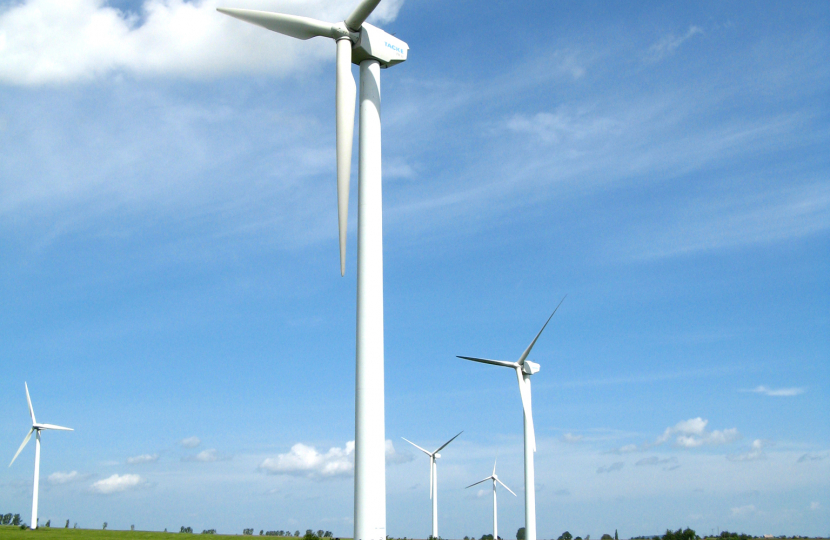
This is my article for this week's Herald and Petersfield Post:
Now that spring is here, it’s hopefully time to lower the central heating, bringing a little easing on energy bills.
Over the last six months, as you would expect, I've heard from many people locally concerned about the cost of heating their homes. And while the energy price guarantee has brought some temporary respite, it is not a long-term solution.
Putin’s illegal war in Ukraine has shown us that reliance on gas – much of which is imported – cannot be our future.
Investing in renewables is really the only way we can meet our climate commitments and reduce our dependence on fossil fuel-rich nations. Last week, the new Department for Energy Security and Net Zero announced an ambitious plan to do just that.
‘Powering Up Britain’ – the government’s blueprint for the future of energy in this country - sets out how the UK will invest in solar, wind, nuclear and hydrogen technology to make us a truly net zero nation.
Amongst the many measures announced were reforms to the planning process to speed up the development of solar power and offshore wind projects. New hydrogen production plants will help us achieve our mission to provide British energy for British homes. All these technologies are critical if we are to wean ourselves off the more polluting energy sources.
Carbon capture technology, essentially stopping the carbon dioxide produced from burning fossil fuels from being released into the atmosphere and either reusing it or storing it underground, will also be fully utilised.
On a local level, homeowners will be incentivised to opt for heat pumps over traditional gas boilers when replacing older models. This is especially important for the 1.5 million homes currently ‘off grid’ and using fossil fuel boilers to heat their homes. Many of these homes are in more rural areas, including quite a lot of East Hampshire.
By 2035, these households will no longer be able to install oil or gas boilers to replace older units. Instead, they will need to opt for an alternative, greener way to heat their homes. I know that this is a cause for concern for some, not least the cost of doing so.
However, support is available in the shape of a £5,000 grant to make the transition, for example by installing a heat pump – and this support has been extended for a further three years. The government is also announcing a specialised training package for local operators so that we can roll out provision more quickly, crucial in an area like ours where supply often does not meet demand.
More charging points for electric vehicles will also soon start popping up across the country. Great news for our more rural areas where, unlike our city neighbours, charging points are less common.
I hope that within the next 20 years all homes will have energy efficient heating systems and be well insulated, and electric vehicles will be the car of choice. It’s an ambitious goal but starting to become achievable with this latest package of measures, which will bring down bills and ultimately our climate emissions too.


